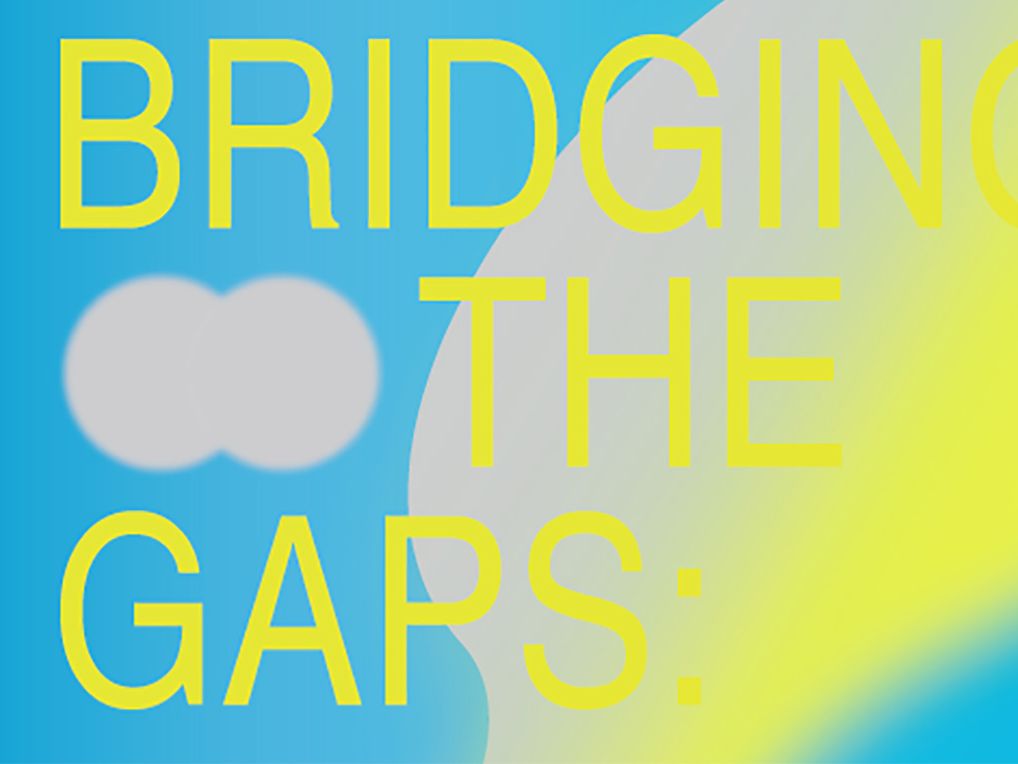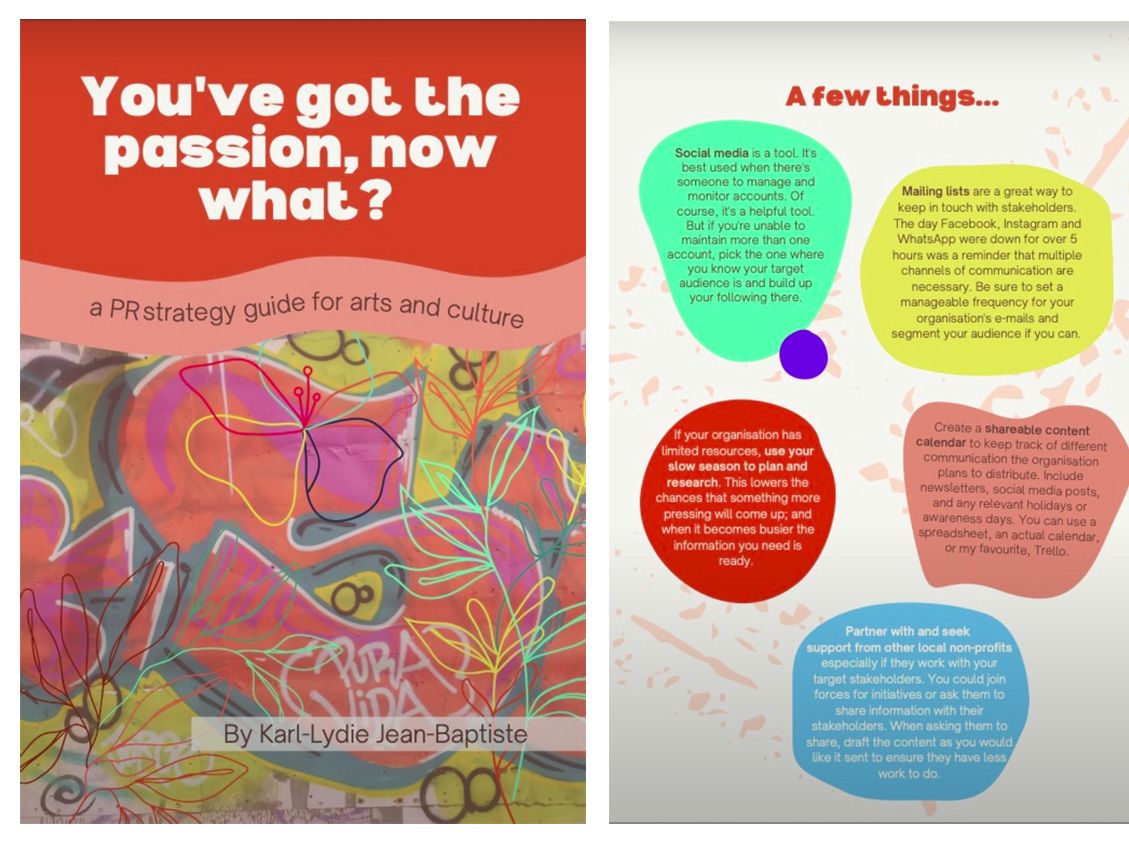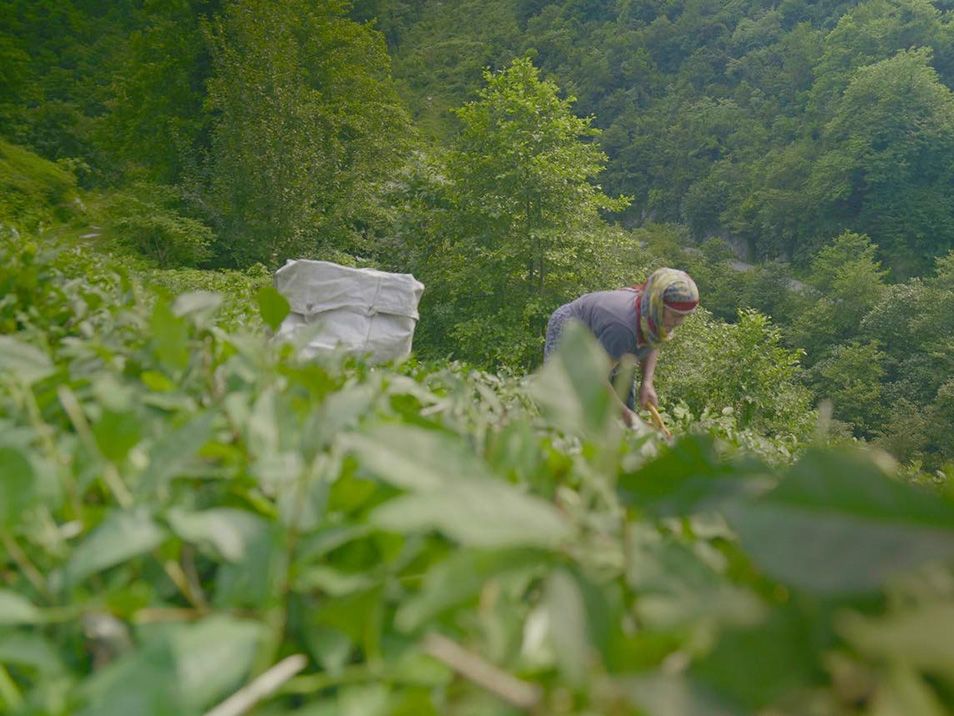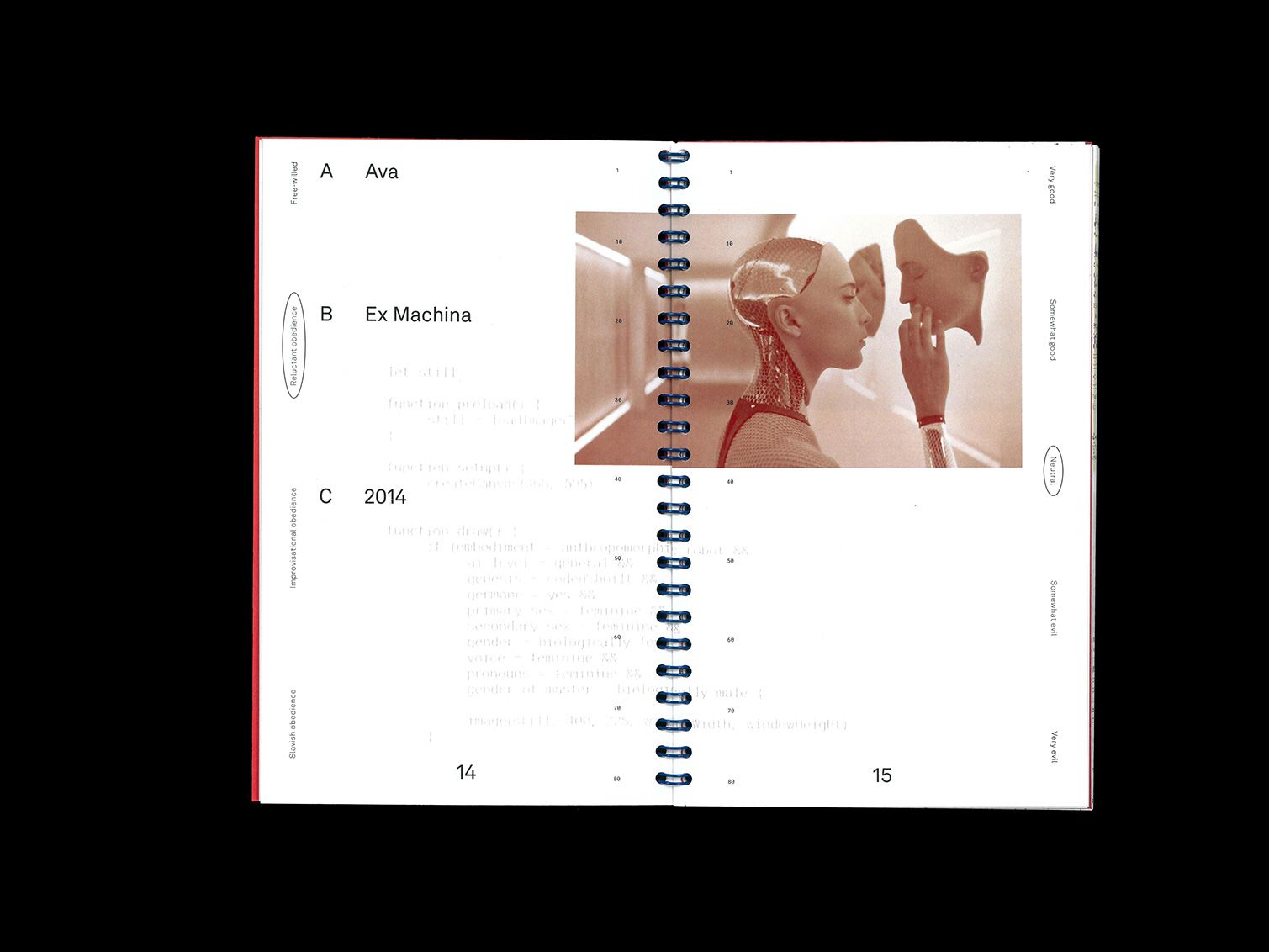
Mentoring Spotlight: Lucie Chambeau x Katrina Young

- Written byChloe Murphy
- Published date 20 September 2022

London College of Communication (LCC) is home to makers, thinkers and innovators. Bringing inspiring ideas and ways of working to a range of diverse industries, we change the world around us and make a positive difference to society.
One of the ways in which we support our students to take the next step in their development is by offering vital support and insight through our Industry Mentoring Programme. This initiative connects current LCC postgraduates and recent alumni to professionals from the creative sectors, all of whom channel profound understanding, experience and insight through opportunities that shape and support the journeys of those at the beginning of their careers.
Together, mentors and mentees catch up regularly to explore ideas and aspirations that are tailored to specific goals - helping students to feel more confident, informed and engaged in the professional landscape while also enabling mentors to further develop their own skill sets and form new contacts across LCC's vibrant network.
We chatted to recent MA Media, Communications and Critical Practice graduate, Lucie Chambeau, and her mentor, digital marketing and technology consultant, Katrina Young, about the importance of human-centred approaches within the creative industries, developing a multidisciplinary skillset, and appreciating the value of knowledge-sharing.

Lucie, how did you first become interested in your discipline?
I studied a BA in Humanities, and gradually became interested in exploring how to implement my knowledge in our contemporary societies. Such thoughts then brought me to orientate myself towards media, digital and cultural studies.
It felt to me like the logical and most natural continuation of my BA studies which were exclusively academic and taught me very abstract notions of understanding the human mind, behaviours and societies. Indeed, my MA in Media, Communications and Critical Practice allowed me to apply these ideas to our concrete contemporary world.
Tell us about your creative practice - what are the key themes or techniques explored in your work?
As a creative, I mostly focus on photography (although that’s not what I’m doing as a job at the moment!). I got into photography at a very young age, and slowly went from attending photography exhibitions and festivals to becoming a photographer myself — I built my creative vision on great photographers I admire but also on my personal life experiences that shaped my perception of the world and people.
The core focus of my work is my passion for people, cultures, human behaviours and interactions within our societies. From my first school project about loneliness and isolation in our digitalised world to my biggest personal project so far on women within urban spaces, I consciously make people the centre of my creative vision. Be it bodily movement, emotion or cultural integration in a space, these themes are inherent to what I see and what I frame within my photography.
My creative vision also helps me a lot in my current job as a fashion, design and lifestyle brand and communications consultant as it helps me to put people at the core of any project I work on. I truly believe that this is essential, and not highlighted enough in the industries I’m currently working and evolving within.
Why did you decide to sign up to Industry Mentoring at LCC?
I was completely new to the professional world as I didn’t take a break between my BA and MA, and both my courses were rather academic.
When I heard about LCC’s Industry Mentoring Programme, I thought the experience and support of a professional who had been working in the industries I was aiming at would be extremely helpful and valuable to me. I hoped that it would provide me a lot of guidance in an environment which was at the time very unfamiliar and sometimes even quite stressful. I felt that I really needed a mentor to help me navigate this new stage of my life.

Katrina, tell us a little bit about your creative journey so far.
My love for marketing, creativity and advertising began in 2004 right here at UAL. From my first project in marketing and AdTech, I’ve been a lifelong learner and evangelist.
Over the years, I have had the pleasure to work in industries ranging from healthcare, construction, properties, education and regulatory bodies to pharmaceuticals, digital publishing, aerospace, beauty, and the private and public sectors. I’m also passionate about blending academia, business, practice and theory, and my work has covered areas such as demystifying technology, digital upskilling, strategy and management consulting, and emerging technologies.
I run a digital agency and business consultancy which delivers SME and corporate training. I run accredited courses, workshops and mentoring, and also have a certificate in teaching and lecturing.
Without my initial studies, I wouldn’t be running my agency and consultancy today – as a lone mum, I began my journey juggling studies, projects and campaigns, which really formed my love for the industry.
Why did you decide to volunteer your time to LCC's Industry Mentorship Programme?
The number one tip that I have for new graduates is to establish yourself as the expert in your niche, and also to understand where you fit in the value chain. Being passionate about sharing this advice meant that it was imperative for me to give back to the students and University where I was able to establish and learn my professional skills.
Industry Mentoring Programme | London College of Communication
What support have you both been able to access and offer through taking part in our mentoring initiative?
Lucie: Katrina asked me to take part in activities which revolved around the common theme of consultancy, with a focus on how to implement inclusive, diverse and sustainable strategies and practices within the creative world.
The main goal of these activities was to learn what the job of a consultant consisted of, what was at stake in a consulting task, and also main pointers on how to conduct research and strategy development and implementation for a client.
We worked on a PowerPoint together in order to develop my presentation skills, and also took part in Q&A sessions, briefings and research exercises.
Katrina: By moving past the theory to working industry practices, I was able to support Lucie and tailor her career mentoring sessions for a future in the workforce of her practice.
Lucie, how has taking part in the programme helped you to develop your career and your practice?
My mentoring journey has helped me in a lot of ways. Firstly, I was able to gain an incredible amount of confidence in both my work and myself thanks to Katrina’s support, mentoring and kind words. I was also able to learn how to assert myself and my skills, which helped me a lot throughout my job-hunting phase.
Finally, Katrina constantly challenged me to push my thinking further, which helped me to figure out much more accurately where I wanted to start at and how to proceed. I’m incredibly grateful to her, and will always remember how much she helped me in the tough moment of launching my career.
Katrina, what have been the highlights of your time as an LCC industry mentor?
I’ve enjoyed all of it – from meeting, coaching and mentoring talented students from the Hackathons, to taking part in Speed Networking sessions.

Lucie, what are your top tips for other students on how to make the most of the mentorship initiative?
I’d recommend demonstrating great proactivity and availability. Your mentor is there to help you, and has dedicated an important part of their day to you, so it’s your responsibility to reach out to them too – get involved, ask questions, and ask for help and support.
It’s also really important that with everything they ask you to do, you should make sure to do it thoroughly. Your mentor will have great levels of experience and know what’s going to help you progress, so it’s very important that whenever they give you a small task to do for the next session, you take time to do it – ultimately, it’ll help you a lot.
Katrina, why would you encourage other creative practitioners to sign up as mentors?
My time at UAL was invaluable. The support staff, academic and personal development courses, and lecturers were all part of a well-balanced approach that helped me to develop the skills I need for my career. As a result, I love to give back to the University where I got my start as a consultant, and would definitely encourage other UAL grads to do the same!
When you’re mentoring, there will be many times when you’re providing help to graduates who have little experience – don’t take your knowledge for granted, as your insights and expertise can make a real difference to emerging creatives.
If you can, I’d also suggest that you try to not convey what you learned, but also how, such as through internships and placements. Outlining what you’ve done will help others to replicate your journey and adapt it for their own needs.
LCC's Industry Mentoring Programme is currently offered as part of our Upgrade Your Future Path initiative, which supports postgraduate students to explore potential careers in the creative industries. The Postgraduate Winter cycle of the programme will reopen for applications in late. 2022.
Related links:
- Follow Lucie on Instagram, and find out more about Katrina's organisation, Katrina Young Consulting.
- Learn more about our MA Media, Communications and Critical Practice course.
- Explore our Industry Mentoring Programme.



